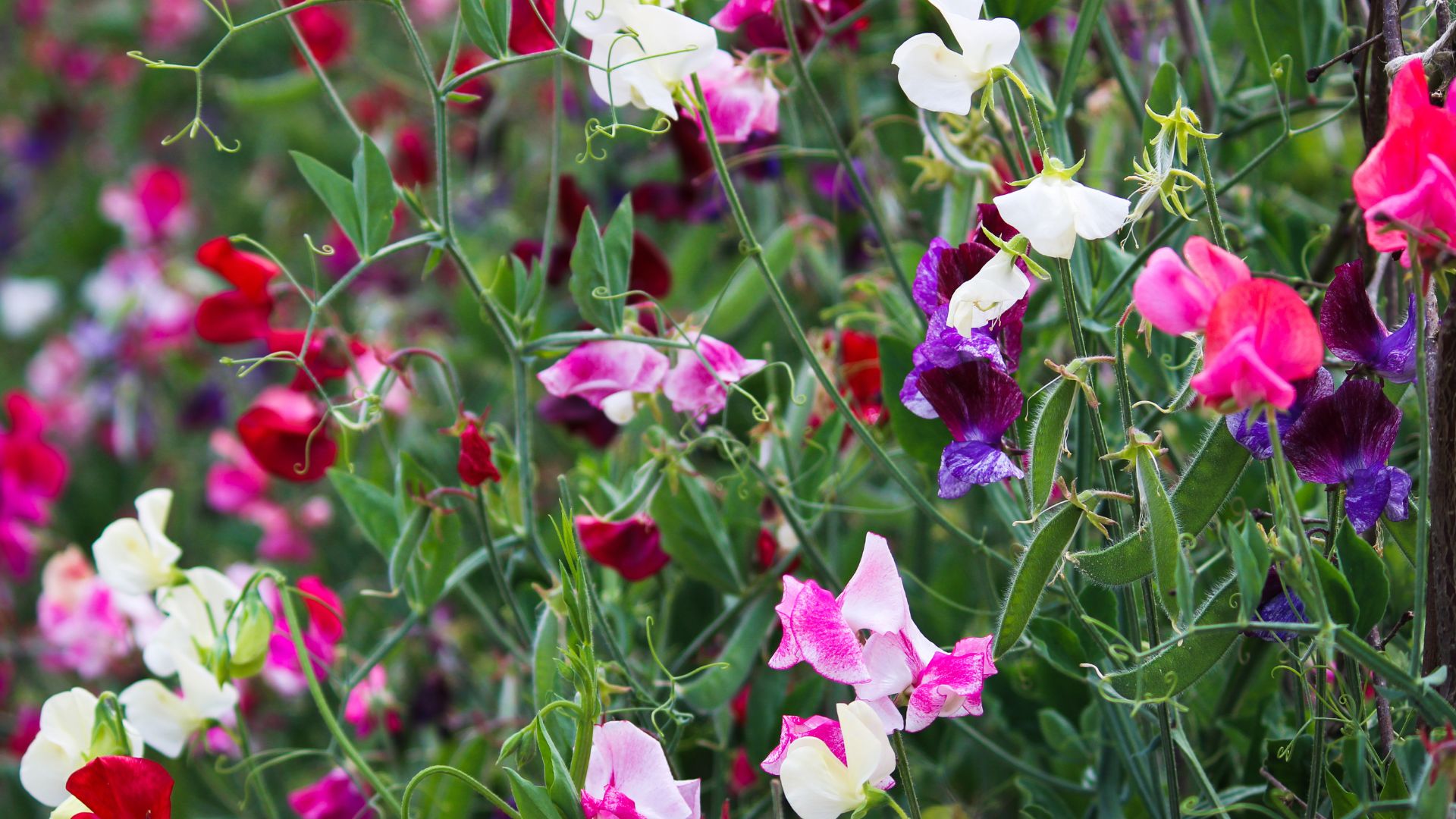
It's no secret that some gardening tasks are not all that fun, so much so that we often put them off. But every now and then gardeners are treated to rewarding and undemanding jobs like this one Monty Don has discussed.
Whether you keep up to date with the garden trends or prefer to go it your own way, working on your garden can sometimes feel like a tiring undertaking. So much so that when it comes to how to sort your garden out, you'll happily take the easiest route and call it a day.
However, Monty Don has revealed the one task that might just be a well-needed relaxing respite to have you excited about your green-thumb antics again.
Monty Don's sweet pea advice
Writing in his monthly blog, the gardening guru Monty Don starts by expressing his surprise at the recent weather conditions.
He says, "Certainly this has been the wettest 12 months in my lifetime. But some rain - not too much - is a blessing in July, and with warm nights and days, everything grows lustily. The days are long and there is none of the slight weariness in the garden that can shadow August."
And with this change in the weather, comes more blooms from flowers and growth from vegetables. If you started vegetable gardening for beginners this year then you'll be harvesting the fruits of your labour in no time.
Monty highlighted just how active the crops are this time of year, he says, "In the fields around Longmeadow hay is made at the beginning of the month and the crops are ripening fast. Harvest is coming and the year is balanced upon its seasonal turn. Despite the long, hot days there is a sense of using every precious moment of summer before it slips away."
Whilst there are many jobs to be getting on with this month, there's one task that Monty says needs to be done now and luckily for us, it's a lovely one that requires minimal effort.
"Few garden chores can be as pleasant or undemanding as this but be sure to regularly pick all the flowers from your sweet pea plants is the best way to extend their flowering season," explains Monty.
Similar to how pruning your clematis will allow more blooms to grow, keeping on top of your sweet pea's flowering will give you more blossoms for longer thanks to their seed pod development. As one of the best fragrant plants for your garden, this can be no bad thing.
Monty continues, "Sweet pea flowers will rapidly develop seed pods in warm weather and these drain energy from the plant and trigger more seed production at the expense of flowers."

So when is the best time to pick sweet peas? Monty says that the optimum picking period for sweet peas is about 10 days. He explains, " It is important to remove every single flower - and to enjoy the resulting fragrant bunches of blooms for the house."
The method is similar to how you deadhead peonies or prune a rose bush for maximum blooms and requires a pair of scissors or small secateurs.
"Use scissors and cut the stems as long as possible and as soon as you see any seed heads remove them immediately. This way, in a cool summer, the plants can go on flowering right into September," finishes Monty.
Once you've cut your sweet peas make sure to follow our guide on how to keep cut flowers for longer. Flowers from your garden are some of the best plants to keep your house smelling good and they'll provide a lovely centerpiece for your dining table.







